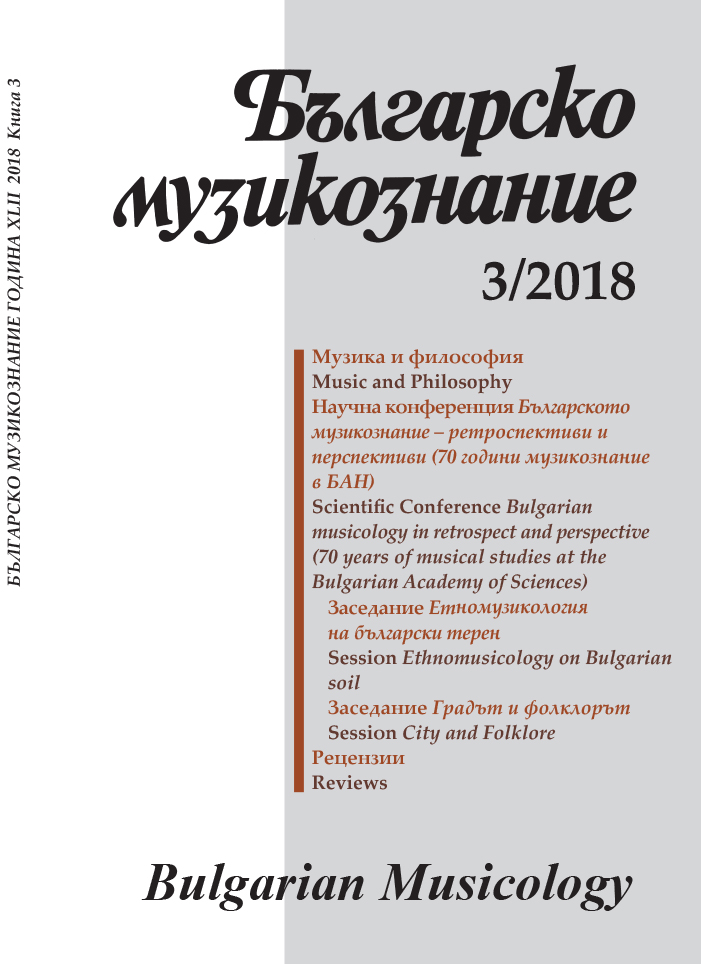Reflections on the Construction of AleviBektashi Rituals and Ritual Space in the Transnational Perspective: Performing Spirituality, Navigating Identity
Reflections on the Construction of AleviBektashi Rituals and Ritual Space in the Transnational Perspective: Performing Spirituality, Navigating Identity
Scientific Conference Bulgarian musicology in retrospect and perspective (70 years of musical studies at the Bulgarian Academy of Sciences) Sessiоn Ethnomusicology on Bulgarian soil
Author(s): Irene MarkoffSubject(s): History, Fine Arts / Performing Arts, Cultural history, Theology and Religion
Published by: Институт за изследване на изкуствата, Българска академия на науките
Summary/Abstract: Drawing from relevant sources and extensive ethnographic research conducted in Turkey, Bulgaria’s northeastern Deliorman (Ludogorije) region, and the Canadian diaspora, this paper will shed light on the increasing visibility and revitalization of Kızılbaş-Alevi/ Alevi-Bektashi spirituality, identity, sacred assemblies and ritual spaces in a changing, sociopolitical climate and increasing ties to a transnational Alevi network. It will also scrutinize the poetics, politics, and affective nature of sacred space during religious rituals known as cem, the role of ritual specialists, and the essential role of poetic-musical expression featuring the long-necked, plucked lute known as the saz or baрlama. The paper begins with a brief historical overview of the origins of KızılbaşAlevis, followed by mention of the Alevi revival in modern-day Turkey and the ensuing re-institutionalization and blossoming of Alevism. This section introduces and elucidates ethnographic accounts of the revitalization of sacred rituals and religious identity in two diasporic contexts. The first case example focuses on Alevis in Toronto who benefit from participation in an expanded transnational Alevi communicative network and life in a society that appreciates and supports cultural diversity and religious tolerance. Because of the absence of traditional prayer houses, however, annual sacred assemblies are held in atypical spaces that serve as temporary sanctuaries with portable, symbolic accoutrements. The second case example discusses the more “organic” rituals and practices of Alevi-related Bektashis and Babais in the rural northeastern, Deliorman Bulgarian context where this religious minority has strengthened and revitalized its heritage and position since the fall of communism by becoming more visible, mobilized, and active.
Journal: Българско музикознание
- Issue Year: 2018
- Issue No: 3
- Page Range: 23-31
- Page Count: 9
- Language: English, Bulgarian
- Content File-PDF

